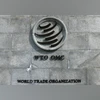India opposes the move led by countries such as China to push a proposal on investment facilitation at the World Trade Organization (WTO), a senior government official said on Tuesday.
This is because investment, as a subject, falls outside the mandate of the WTO. Besides, India is fundamentally against plurilateral pacts on multilateral platforms such as the WTO.
A China-led group of 130 countries is pushing for the Investment Facilitation for Development (IFD) proposal. The proposal will be binding for only the signatory members. Since India has opposed it, it won’t be applicable to it.
“We are against that also,” the official said.
India has opposed it as that would dilute the multilateral nature of the WTO. This will be discussed at the WTO’s crucial 13th ministerial meeting scheduled to begin in Abu Dhabi next week.
The IFD was first mooted in 2017 by China and other countries that depend heavily on Chinese investments, and countries with sovereign wealth funds are party to that pact. Among major countries, the US is also sitting out of the agreement. Sri Lanka and Pakistan are also not part of it.
Also Read
India will oppose the continuation of the exemption of Customs duties on e-commerce or electronic transmission at the ministerial meeting.
“We are not in favour of an extension. We want policy space for imposing Customs duty on digital goods. There is a need to look at the subject from a development dimension and not from the eye of Big Tech companies,” a senior government official said.
Another government official said that India believes that there is a need for a clear definition of goods under electronic transmission.
Electronic transmission in global trade would include items such as software downloads, digital books, and video games, the official said.
In 1998, WTO members agreed not to impose Customs duties on e-commerce, and the moratorium has been periodically extended at successive ministerial conferences.
In the previous ministerial meeting in June 2022, there was an 18-month extension of the moratorium on Customs duty.
India and South Africa have been making several joint submissions at the WTO, highlighting the adverse impact of the moratorium on developing countries.
They have proposed a reconsideration of the extension for the development of the local industry in developing countries.
According to the United Nations Conference on Trade and Development, the potential tariff revenue loss to developing countries is estimated at $10 billion annually, as of 2017.
For India, it could be over $500 million every year. Developed countries like the US, Australia, and Japan want an extension of the moratorium.
)